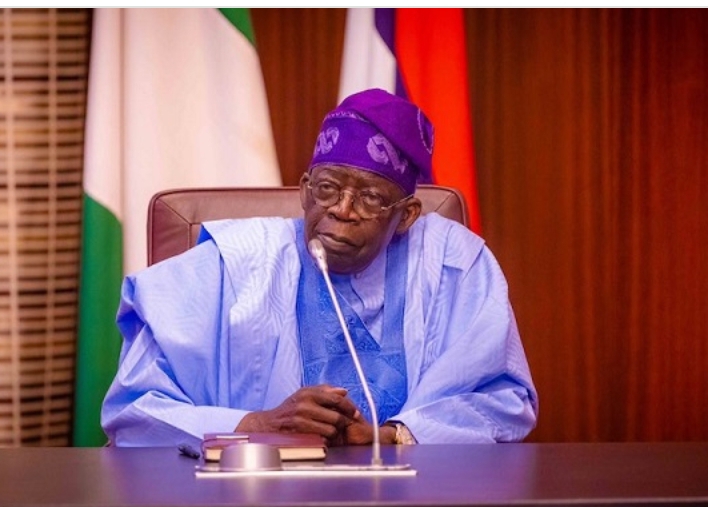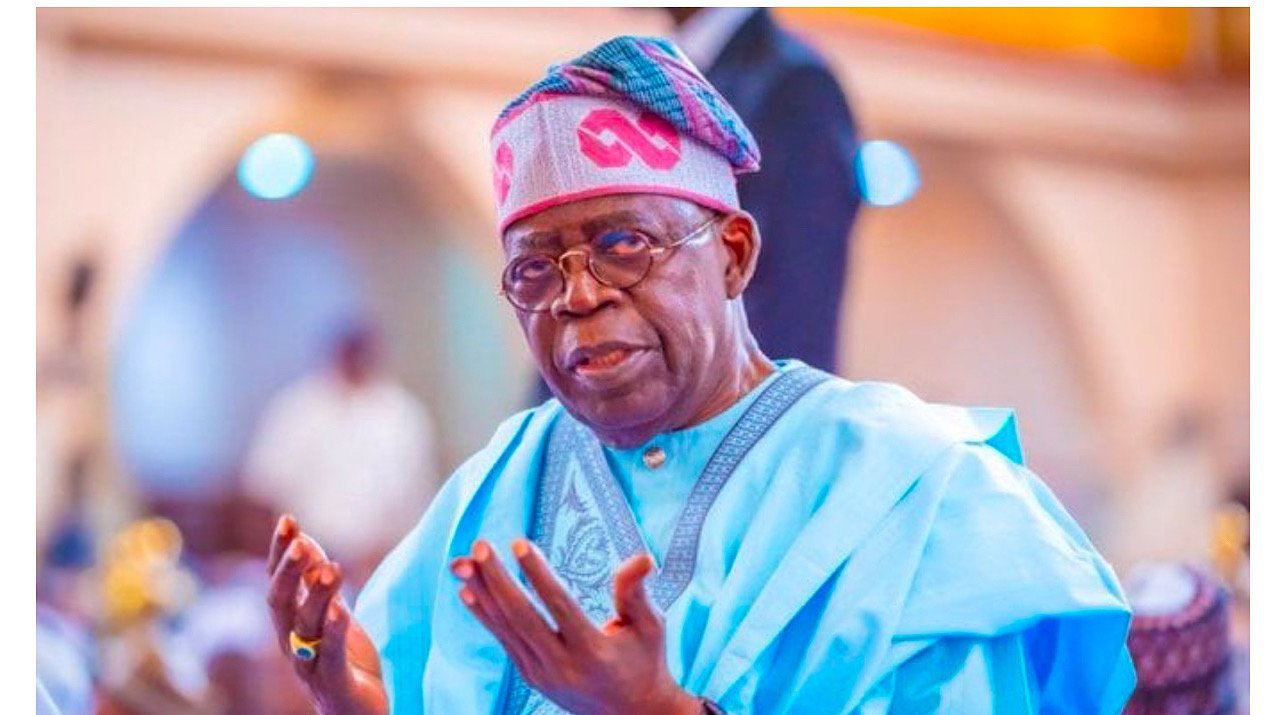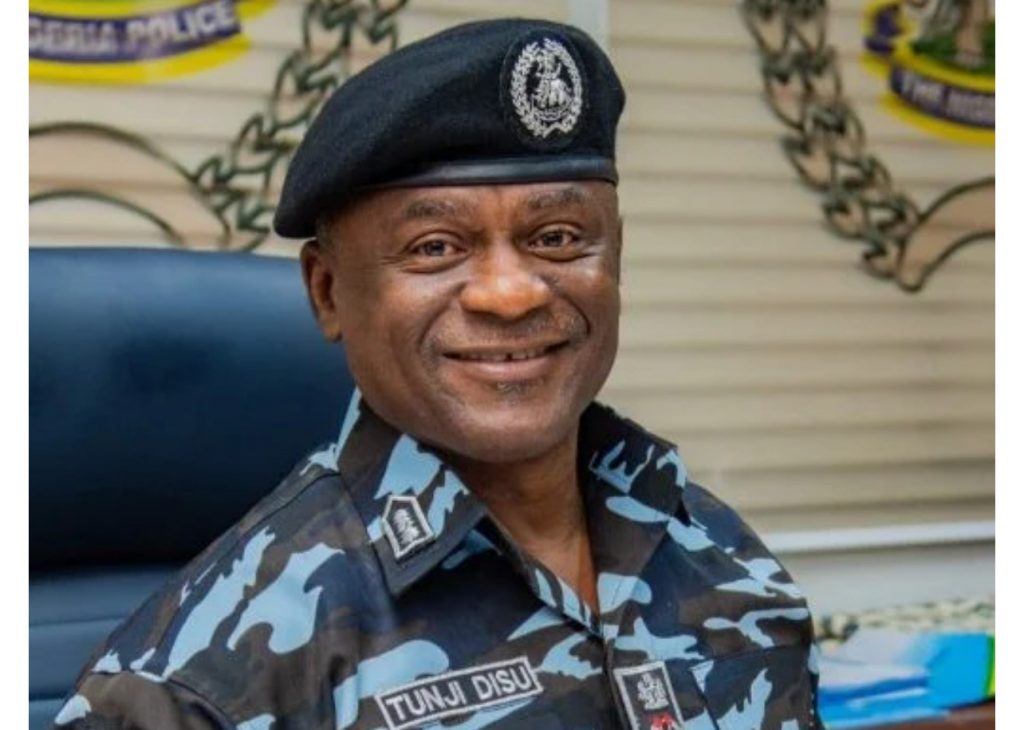news
BREAKING : One-Year Anniversary: Tinubu is Ready to Fire Any Minister that Fails to Deliver on His Administration’s Eight-Point Agenda, Says Onanuga

 President Bola Tinubu is ready to fire underperforming ministers who fail to deliver on targets set for them, the Presidency has said.
President Bola Tinubu is ready to fire underperforming ministers who fail to deliver on targets set for them, the Presidency has said.
The Special Adviser on Information and Strategy to the President, Bayo Onanuga, speaking in an exclusive interview with Media team, said though the President was yet to decide on the ministers’ performances, he had told them to deliver on his administration’s eight-point agenda. He added that those found wanting would be asked to leave the cabinet.
Onanuga also rated the performance of the administration high as it approaches its first year in office, giving it a score of 70 per cent.
He said when President Tinubu took over, Nigeria was using 97 per cent of its revenue to service debt, and was borrowing for recurrent expenditure, which include the payment of salaries, adding that the administration brought the nation back from the brink of economic collapse with the implementation of bold policies, such as the removal of fuel subsidy, and the unification of the exchange rate.
President Bola Tinubu, had while inaugurating his 48 ministers, advisers, and other aides, urged them to put aside their personal interests and focus on his government’s immediate concern of pulling Nigeria out of poverty.
The President gave the advice at the close of a three-day retreat for ministers, permanent secretaries, presidential aides, and other top government officials at the State House, Abuja, last year after they were appointed.
He told the participants that they had the responsibility of changing the narrative about the country, noting that if they had any problem with Nigeria, they should have a conversation about it.
President Tinubu stressed the need for the officials to bond and ensure that the country recovered from ‘elephantiasis’.
He said, “We have gathered here to shape the future, no threat about it. The responsibilities we bear are not just titles; they are the hopes and aspirations of millions of Nigerians.
“You might be ready to forget about the rest of the world but as a Nigerian, let’s go out there, let’s bond together and make sure our country is fully recovered from elephantiasis.
“Let me remind you that you are not here to make excuses; neither am I. I am your friend, brother, father and grandfather.
“You must put outside personal ambitions and focus on the progress of our nation. It is through this that we can be truly proud. I am proud to stand before you. I am very proud of all of you. And, I am proud of myself too. I contested the election and won with your support. They took me to court, and I won.”
The President also extracted the commitment of the ministers and other government officials to work together as a team to achieve the goals of his government, asking, “We are about to close this three-day cabinet retreat, are we proud that we are Nigerians? Are we sure that we’ve done this? Is the responsibility of the permanent secretary clear in partnership with the minister? Are we one family?
“Since we are one family and one nation, and we are in this vehicle together to change the narrative and bring about the economic prosperity of our country. Are we ready?”
The President further told his ministers and other aides, “We have a responsibility to our country to make sure we completely change the narrative about Nigeria.
“If we have problems, let’s talk to one another. Let’s have gentle conversations about our country. It is not about ‘just leave me alone, I’m going home’; you may not have a home.
“There’s nothing you can do successfully without good healthcare and poverty reduction. Like I said before, poverty is not a shameful thing, but it is not acceptable. Are we going to dig our people out of it?”.
There has, however, been some disquiet around the country as Tinubu counts days to his first anniversary.
From rising inflation to insecurity and a shaky exchange rate, the country, according to analysts, still has a long way to go.
Although the President inherited a struggling economy, he promised to get it running in no time.
Tinubu, in his 80-page policy document, highlighted an eight-point agenda, with national security and economy topping the list.
Others include agriculture, power, oil and gas, transportation, and education.
In his manifesto, Tinubu said his objective was to foster a new society based on shared prosperity, tolerance, compassion, and the unwavering commitment to treating each citizen with equal respect and due regard.
He promised to build a Nigeria, especially for the youth, where sufficient jobs with decent wages create a better life.
He said, “Manufacture, create and invent more of the goods and services we require. Nigeria shall be known as a nation of creators, not just of consumers. Export more and import less, strengthening both the naira and our way of life. Continue assisting our ever-toiling farmers, through enlightened agricultural policies that promote productivity and assure decent incomes, so that farmers can support their families and feed the nation.
“Modernise and expand public infrastructure so that the rest of the economy can grow at an optimal rate.
“Embolden and support our young people and women by harnessing emerging sectors such as the digital economy, entertainment, culture and tourism, and others to build the Nigeria of tomorrow, today.
“Train and give economic opportunities to the poorest and most vulnerable among us. We seek a Nigeria where no parent is compelled to send a child to bed hungry, worried whether tomorrow will bring food.”
He also vowed that his government would generate, transmit and distribute sufficient, affordable electricity to give people the requisite power to enlighten their lives, homes, and dreams.
“Make basic healthcare, education, and housing accessible and affordable for all; and, most importantly, establish a bold and assertive policy that will create a strong yet adaptive national security architecture and action to obliterate terror, kidnapping, banditry, and all other forms of violent extremism from the face of our nation.”
On May 29, as he was sworn in, the president removed petrol subsidy, which many economic analysts said was responsible for corruption and waste in the oil sector.
This was greeted by outrage, with protests erupting in several locations as a result of the high cost of Premium Motor Spirit, transportation, and food items.
Inflation rose astronomically and has continued to do so month-on-month.
As of April 2024, the headline inflation rate increased to 33.69 per cent relative to the March 2024 headline inflation rate, which was 33.20 per cent, according to the National Bureau of Statistics.
In February, the headline inflation rate increased to 31.70 per cent relative to the January 2024 headline inflation rate, which was 29.90 per cent.
Meanwhile, the February 2024 headline inflation rate showed an increase of 1.80 per cent (five points), when compared to the January 2024 headline inflation .
Unemployment also rose to about 4.1 per cent, with over 60 per cent of the youth either unemployed or underemployed.
In commemoration of his first anniversary in office, Tinubu directed his ministers to present their performance reports to Nigerians.
The Minister of Information and National Orientation, Mohammed Idris, while announcing this at a press briefing in Abuja on Wednesday, said the low-key first-anniversary celebration would be marked with sectoral media briefings by the 47 federal ministers.
Idris was joined at the press conference by the Secretary to the Government of the Federation, Senator George Akume; and the Minister of Budget and Economic Planning, Abubakar Bagudu.
On January 24, 2024, the agency in charge of the assessment, the Central Delivery Coordination Unit, trained at least 140 officials to track and assess the performance of federal ministries, departments and agencies ahead of the assessment.
Speaking on Arise TV’s News Night programme in April, the President’s Special Adviser on Policy Coordination, Hadiza Bala-Usman, who also heads the CDCU, affirmed that the unit had received performance reports from at least 20 ministries.
She explained that the assessment report would be the joint effort of the ministers, citizens and industry experts.
Meanwhile, in April, the Presidency unveiled a citizens’ feedback platform in a bid to get a ‘strong feedback loop between citizens and government’ on the eight priority areas of the current administration.
Bala-Usman, who disclosed this at the Go-Live event of the CDT held in Abuja that month, said the creation of the application was informed by President Tinubu’s decision to assess his ministers and heads of agencies based on key performance indicators.
Bala-Usman added that the eight priority areas for the assessment of the ministers’ performances in the App included reforming the economy to deliver sustained inclusive growth, strengthening national security for peace and prosperity, boosting agriculture to achieve food security, and unlocking energy and natural resources for sustainable development.
Others are to enhance infrastructure and transportation as enablers of growth; focus on education, health, and social investment as essential pillars of development; accelerate diversification through industrialisation, digitisation, creative arts, manufacturing and innovation; and improve governance for effective service delivery.
Also, in an interview in October 2023, Bala-Usman provided extensive details about the application and its expected deliverables.
She had said, “We are going to deploy an application— a software— where citizens can report back on project-based deliverables that the Federal Government has committed to doing within the period to 2024.”
Detailing the process at the time, she said, “We sat with the Office of the Secretary to the Government of the Federation. We have worked effectively to define the exact deliverables for each ministry.
“Those deliverables cascade to the agencies of government. So, for example, you have deliverables for the health sector, and everything that is contained within the value chain or the ecosystem within that sector will be contained within the deliverables.
“Those deliverables are translated into key performance indicators for the respective ministries. Once you have your key performance indicators, you’re able to clearly understand what your deliverables are over the period of the four years of the administration.”
However, an analysis of the feedback reports from the application made available to our correspondence showed that some Nigerians rated the Minister of Power, Adebayo Adelabu; Minister of Defence, Mohammed Badaru Abubakar; Minister of Education, Prof Tahir Mamman; and the Minister of Agriculture and Rural Development, Mohammad Abubakar, very poorly, giving each of them one mark out of a possible five.
However, Onanuga insisted that the President had done well given what he met on the ground.
While promising that the administration would deliver more on its promises in the next 12 months, the president’s Special Adviser on Information and Strategy said Tinubu would sack ministers who failed to perform and meet the targets set for them.
He said, “President Tinubu has already told them (the ministers) they will go if they can’t perform. He told them at the retreat last year that the government has an eight-point agenda, and he expects the ministers to deliver on it. Those who are found wanting would have to go. But, as of today, the President has not made any decision on that.”
Onanuga also stated that while the President had not announced that he would reshuffle his cabinet, he wanted them to be accountable, adding that that was why he asked them to present their scorecards, even though they had only spent eight months in office.
“The president has not said he is going to reshuffle. Let me explain something. None of those ministers have spent one year in office. They came in last August. The president wants them to be accountable. That’s why he told them to come out and give their scorecards, to talk about what they have done in the last eight months. When you see what they have done, you cannot but give this government, in its first year, a 7/10 for the various achievements that his ministers and, by extension, his government have achieved.”
However, the main opposition party, the Peoples Democratic Party does not see anything good to cheer about the one year in office of President Tinubu.
Faulting claims by the All Progressives Congress that President Tinubu had done very well and that Nigerians would rate him highly, the Acting National Chairman of the PDP, Umar Damagum, described the first year stewardship of the president as ‘an abysmal failure’.
Also reacting, the Deputy President of the Labour Party, Ayo Olorunfemi, said the presidency was only deceiving Nigerians to think that President Bola Tinubu had done well in his first year in office.
He criticised the president and the APC, saying Tinubu’s administration had only taken citizens from ‘frying pan to fire’.
He said, “They have done well to themselves as a nuclear family. They are nuclear families. Nigeria is roasting in poverty, people can no longer feed, hopelessness has taken over the land, and anarchy is taking over. So, what is it that he has done? What is it that this government and its political party have done in the past nine years?
“They took us from frying pan to fire. That is exactly what they have done in the past nine years. I don’t think they have done anything good. They are just deceiving us, believing that Nigerians are fools.”
In his reaction, a public affairs analyst, Dr Emma Jimo, in an interview with media house, highlighted the government’s failure to address basic needs despite promises of renewed hope.
He said, “Pick education, for example. The government is performing poorly. Maybe the highest point is the government taking responsibility to pay the backlogs of the previous government’s indebtedness to ASUU. Even at that, it is still poor. Aside from that, look at what binds all Nigerians together – the economy.
“This government is performing poorly on the standard of living. The cost of living has gone up astronomically. The measures put in place to run the economy have not been working. They failed woefully, and they are still failing.”
In a similar vein, another analyst, Dr Anthony Ahmedun. Said that the current administration had disappointed Nigerians with its performance in one year, adding that it had continuously made poor decisions that were rejected by the citizens.
The academic said, “I had believed the Tinubu-led government would be able to take Nigeria to a greater height from the mess the previous administrations left us, looking at his (Tinubu’s) experience in politics, and especially his role in Lagos State. But to my utmost disappointment, the current administration has not met expectations at all.
“Economy wise, especially, because I felt he was coming in with the economic idea of Lagos, and should be able to help the economy of Nigeria. But, he has not been able to do so in any way. We can see how unstable the naira has been. We have also seen some wrong decisions taken, such as naira devaluation and subsidy removal.”
news
Update : Seyi Tinubu Responds to King Mitchy, VeryDarkMan Saga


Seyi Tinubu, son of President Bola Tinubu, has issued a statement debunking allegations linking him to a feud between social media personalities Martins Vincent Otse, popularly called VeryDarkMan, and Mitchell Mukoro, widely known as King Mitchy.
The controversy stems from claims suggesting an improper relationship or secret arrangements between Seyi Tinubu and King Mitchy, which VeryDarkMan has reportedly used to intensify his online narrative.
Our correspondence reports that philanthropist and content creator King Mitchy recently announced that she renovated a dilapidated school in six days, suggesting that the project was proof that meaningful change could happen swiftly when there was genuine intent.
However, she reportedly made comments widely interpreted as subtle jabs at VeryDarkMan, who, in turn, accused her of being used as a political pawn to launder the image of President Bola Tinubu’s administration.
Tagging the President’s son. VeryDarkMan was said to have alleged in another video that both Seyi Tinubu and King Mitchy were threatening his life.
Addressing the comments in a statement shared on Instagram on Saturday, Seyi Tinubu categorised the allegations and insinuations as false.
He clarified the nature of his interaction with King Mitchy, framing it strictly within the bounds of his long-standing philanthropic work.
Tinubu wrote, “I met Mitchy once, in a public setting, alongside others. On that occasion, I provided financial support toward her NGO activities, just as I have supported many young Nigerians and organisations working to empower our people.
“A follow-up meeting had been scheduled for me to receive an update on the impact of her NGO’s work following the donation. That meeting did not take place because I have been unwell.”
He categorically denied any private encounters, saying, “There has never been a private encounter, no secret arrangement, and no impropriety of any kind.”
Tinubu took direct aim at VeryDarkMan, accusing the activist of using a feud he had no part in to attack his reputation.
He wrote, “What is deeply concerning is that a feud I did not start, and in which I have played no part, has been used as a vehicle to insert my name into a narrative without basis in truth.
“For reasons best known to him, VDM appears to have been looking for a trigger, an opportunity to attack and attempt to harm my reputation and seized upon this situation to do so. I will not accept that.
“If my name generates attention, let us at least deal in facts. Supporting charitable causes is not a crime. Meeting someone publicly to support their NGO is not a scandal. Repeating falsehoods loudly does not transform them into truth.”
Tinubu asserted that he won’t be intimidated by “fictional” narratives, emphasising that he refuses to be bullied.
“I will not be bullied, and I will not dignify fiction with panic.
“I have experienced bullying before, and I understand the harm it can cause. That is why I take a firm stance against it,” he said.
Tinubu concluded by reaffirming his commitment to serving Nigerian youth through his foundation, insisting that “philanthropy and outreach must never be politicised or weaponised.”
“To those seeking to manufacture controversy: Nigeria needs builders, not bullies. We need responsible discourse, not sensationalism driven by speculation.
“I firmly reject the accusations made against me. I call for de-escalation, for restraint, and for a return to truth and responsibility,” he added.
news
Security Reform: Tinubu Calls for Urgent Constitutional Backing for State Police


…raises fresh alarm over terrorism, banditry at State House Iftar
…Akpabio pledges more support, vows no executive bill will die in Senate
President Bola Ahmed Tinubu on Wednesday night formally urged the Senate to begin the process of amending the 1999 Constitution to provide for the establishment of state police, declaring that Nigeria must urgently restructure its security architecture to confront terrorism, banditry and insurgency.
Speaking at an interfaith breaking of fast with the leadership and members of the Senate at the State House, Abuja, the President said the time had come for lawmakers to “start thinking” about embedding state policing in the Constitution to enable governments at subnational levels better secure their territories.
“Nigeria is extremely challenged, we are facing terrorism, banditry, insurgency, but you never failed to make a right response to these calls. What I will ask for tonight is for you to start thinking how best to amend the Constitution to incorporate the state police for us to secure our country, take over our forests from marauders, free our children from fear”, Tinubu said.
The President’s latest appeal adds momentum to a campaign he has sustained since early in his administration.
In February 2024, during an emergency meeting with the 36 state governors at the State House, Tinubu approved the creation of a joint committee of federal and state representatives to explore modalities for establishing state police, insisting that the country must “move aggressively” to improve security of lives and property.
He renewed the call in November 2025, urging the National Assembly to begin reviewing relevant laws to allow states willing to establish their own policing structures to do so.
At the APC National Caucus meeting in December 2025, he again pressed governors and lawmakers to back constitutional reforms for state police and local government autonomy.
Only days ago, at an interfaith breaking of fast with governors at the Presidential Villa, the President declared that state police “can’t wait” and “will not be postponed,” urging preparations for what he described as a necessary shift in the nation’s security architecture.
At Wednesday’s gathering with senators, Tinubu framed the proposed reform as a constitutional obligation anchored on unity and shared responsibility.
“What you have faced in the challenging period of this country, the terrorism and banditry, is causing us havoc and we should pull together, unite in a way that our forefathers contemplated to bring about a constitutional democracy and pull us together. They didn’t say we should fight,” he said.
Beyond security, the President expressed deep appreciation to lawmakers for supporting what he described as bold and necessary economic reforms.
“I have a lot of credit for bold reforms. Without your collaborations, without your inspirations, those reforms are not possible. We are reformists together,” he said.
Tinubu defended the removal of petrol subsidy and foreign exchange reforms, describing them as steps taken to halt “monumental corruption.”
“What we gave up and what we stopped is a monumental corruption in subsidy. We gave it up. We don’t want to participate in monumental corruption, in arbitrage, foreign exchange,” he stated.
‘Amend Constitution to accommodate state police’
State police and questions Nigeria can no longer avoid
Senate backs state police, technology-driven reforms to boost Nigeria’s security
According to him, the reforms have laid the foundation for economic stability.
“You don’t have to chase me for dollars. In the past, you could see what Nigeria is today. You should be proud… What we are enjoying is stable economy, prosperity beckoning on us. We just need to work hard for it,” he added.
Responding to criticisms from political opponents, the President dismissed claims that he was stifling opposition voices.
“When they accused me of killing oppositions, I didn’t have a gun… I can’t blame anybody from jumping out of a sinking ship if they did,” he said, in apparent reference to recent defections.
He described the coincidence of Ramadan and Lent as symbolic of national unity and called for continued harmony between the executive and legislature.
“We are committed to Nigerian entity succeeding. We are committed to make law for the welfare, prosperity of the country. I think we are committed together to govern together,” he said.
In his response, President of the Senate, Senator Godswill Akpabio, assured the President of the chamber’s loyalty and continued cooperation.
“We have nothing to give to you than to assure you of our loyalty,” Akpabio said. “I’m sure you have noticed that nothing you have ever sent to us died in first reading, and it will never happen.”
He said the Senate painstakingly reviews executive proposals to ensure they serve national interest, even when they initially attract criticism.
“We sit down to painstakingly go through everything that comes before us, and then at the end, we see that it is in the interest of Nigerians, even when the social media is not seeing it,” he said.
Akpabio commended Tinubu’s tax reforms, foreign exchange unification, fuel subsidy removal and the recent electoral amendment, noting that the President promptly assented to the revised Electoral Act when convinced it served national interest.
He expressed optimism that by 2031, Nigeria would be more prosperous under Tinubu’s leadership and offered prayers for peace amid what he described as “troubles and sponsored insecurity” in parts of the country.
The Senate President also thanked Tinubu for appointing former Senator Jimoh Ibrahim as an ambassador, describing it as recognition of legislative talent.
The interfaith gathering ended with prayers for unity, wisdom and strength for the nation’s leaders as they navigate security and economic challenges.
news
BREAKING: Tinubu Names Tunji Disu Acting Inspector General After Egbetokun’s Exit


President Bola Tinubu has accepted the resignation of the Inspector-General of Police, Kayode Egbetokun, and approved the appointment of Tunji Disu as Acting Inspector-General of Police with immediate effect.
Our correspondent had earlier reported that Egbetokun tendered his resignation letter on Tuesday, citing pressing family considerations.
Appointed in June 2023, Egbetokun was serving a four-year term scheduled to conclude in June 2027, in line with the amended provisions of the Police Act.
In a statement issued on Tuesday by his Special Adviser on Information and Strategy, Bayo Onanuga, the President received the letter earlier on Tuesday and expressed appreciation for his service to the nation.
He also commended Egbetokun’s “decades of distinguished service to the Nigeria Police Force and the nation,” acknowledging his “dedication, professionalism, and steadfast commitment to strengthening internal security architecture during his tenure.”
“In view of the current security challenges confronting the nation, and acting in accordance with extant laws and legal guidance, President Tinubu has approved the appointment of Assistant Inspector-General of Police Tunji Disu to serve as Acting Inspector-General of Police with immediate effect.
“The President is confident that AIG Disu’s experience, operational depth, and demonstrated leadership capacity will provide steady and focused direction for the Nigeria Police Force during this critical period,” the statement read.
It added that in compliance with the provisions of the Police Act 2020, the President will soon convene a meeting of the Nigeria Police Council to formally consider Disu’s appointment as substantive Inspector-General of Police, after which his name will be forwarded to the Senate for confirmation.
The President reaffirmed his administration’s commitment to enhancing national security, strengthening institutional capacity, and ensuring that the Nigeria Police Force remains professional, accountable, and fully equipped to discharge its constitutional responsibilities.
-

 news5 years ago
news5 years agoUPDATE: #ENDSARS: CCTV footage of Lekki shootings intact – Says Sanwo – Olu
-

 lifestyle6 years ago
lifestyle6 years agoFormer Miss World: Mixed reactions trail Agbani Darego’s looks
-

 health5 years ago
health5 years agoChairman Agege LG, Ganiyu Egunjobi Receives Covid-19 Vaccines
-

 lifestyle4 years ago
lifestyle4 years agoObateru: Celebrating a Quintessential PR Man at 60
-

 health6 years ago
health6 years agoUPDATE : Nigeria Records 790 new cases of COVID-19
-

 health6 years ago
health6 years agoBREAKING: Nigeria confirms 663 new cases of COVID-19
-

 entertainment1 year ago
entertainment1 year agoAshny Set for Valentine Special and new Album ‘ Femme Fatale’
-

 news9 months ago
news9 months agoBREAKING: Tinubu swears in new NNPCL Board


